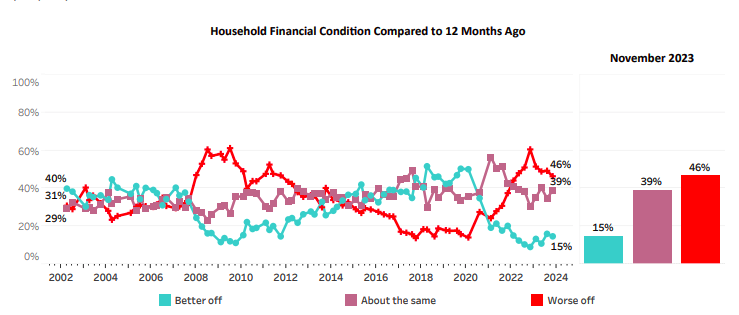SCOTUS Trans Surgery for Minors Case Could Impact NH Law

The United States Supreme Court is set to hear arguments over whether states have the right to ban gender reassignment medical procedures for minors. It’s a case that could impact New Hampshire’s newly-passed law.
The American Civil Liberties Union and the Biden administration want to overturn the transgender surgery ban put in place by Tennessee. It outlaws doctors giving puberty-blocking medications to children whose parents identify them as transgender. The law also bans doctors from performing procedures like vaginoplasties, the surgical creation of a vagina from other parts of the body; phalloplasty, the surgical creation of a penis; and metoidioplasty, the transformation of a clitoris to a penis, on children.
Supporters of those bans note the surgeries are permanently disfiguring and difficult — if not impossible — to entirely reverse. Earlier this year, the Biden administration released a policy statement declaring its opposition to sex-change surgery for minors.
That was a reversal from the same Biden health officials whose original draft guidelines would have lowered the age minimums to 14 for hormonal treatments, 15 for mastectomies, 16 for breast augmentation or facial surgeries, and 17 for genital surgeries or hysterectomies.
In response to those aggressive actions by the federal government, states began passing laws banning the extreme procedures from being performed on children. Tennessee’s ban is similar to the law Gov. Chris Sununu signed this summer, HB 619.
“HB 619 ensures that life-altering, irreversible surgeries will not be performed on children,” Sununu said in his signing statement.
If the Biden administration and the ACLU are successful at the Supreme Court arguing against the Tennessee ban, HB 619 could be in trouble. However, conservative lawyer Ian Huyett with Cornerstone, said even if Tennessee wins, New Hampshire could still lose.
“The Tennessee case is about whether a state can ban gender transition therapy for minors under the federal Equal Protection Clause,” Huyett told NHJournal. “New Hampshire has a narrower ban on genital reassignment surgery on minors, RSA 332-M, that is similar to Tennessee’s law. A victory for Tennessee in this case could insulate that law from federal Equal Protection Clause challenges.
“However, our state courts in New Hampshire are the final authority on the New Hampshire Constitution—and they do not need to follow the federal courts. Our state courts could still hold that the state Constitution provides a right to chemically castrate minors, or a right to go into the locker rooms of the opposite sex. That could then be the law in New Hampshire for 10 years, regardless of what the US Supreme Court says,” according to Huyett.
The ACLU lawyer who will be arguing the case before the Supreme Court claimed Tuesday that children as young as two years old can “know” they were born in the wrong bodies.
“Our argument is that it treats people differently because of their sex,” attorney Chase Strangio — who was born female and now lives as a male — told CNN’s Jake Tapper. “These are young people who may have known since they were two years old who they are … It’s not the kids who are consenting to the treatment, it’s the parents who are consenting to the treatment.”
Strangio claimed years of medical data show gender reassignment surgeries and puberty blockers are good for transgender children.
“This is medical treatment that provides critical benefits to adolescents that need it,” Strangio said.
However, the data does not actually show that children need gender reassignment. Great Britain banned puberty blockers for children after the National Health Service commissioned Dr. Hilary Cass to perform an independent review of medical treatment for children who identify as transgender. The Cass Report found a shocking lack of data to back up the life-changing treatments given to children.
“The reality is that we have no good evidence on the long-term outcomes of interventions to manage gender-related distress,” the Cass Report states.
Several other European countries, including Sweden, Norway, and France, are taking a more restrictive approach to gender-reassignment procedures as more data become available.
In the U.S., however, studies that raise questions about gender reassignment have been suppressed or left unpublished due to politics.
For example, the World Professional Association for Transgender Health, or WPATH, is the group that developed the SOC-8 guidelines for medical care for children for the federal Health and Human Services agency.
WPATH is the group that recommends castrations as a medical treatment for men who identify as eunuchs. Even still, WPATH’s first draft of the SOC-8 guidelines included age limits for children seeking gender reassignment treatment. But Biden’s Surgeon General Rachel Levine, a transgender woman, reportedly pressured WPATH to remove age restrictions from the SOC-8 draft, court records show.
WPATH was caught hiding evidence that did not support gender reassignment surgeries and other treatments for children in other instances, according to court records.
Dr. Karen Robinson, research team leader from Johns Hopkins University School of Medicine working on SOC-8, reported to HHS that WPATH was suppressing her research because it found there is no real evidence gender reassignment surgeries actually helped children.
Robinson first reported to HHS that her researcher looked at the reported benefits of gender reassignment procedures and “found little to no evidence about children and adolescents.” At the same time she told HHS that WPATH was blocking her from publishing the report.
“[WPATH is] trying to restrict our ability to publish,” Robinson wrote to HHS.
WPATH was simply enforcing its policy that all SOC-8 researchers write articles that “use the Data for the benefit of advancing transgender health in a positive manner,” according to court records.






